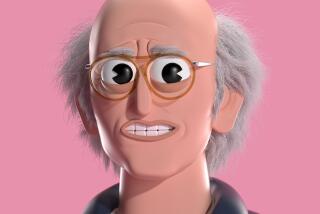Cutting His Teeth : Soviet Dental Student Learns New Techniques to Take Back Home
- Share via
Soviet dental student Sergei Poptsov came to study dentistry in Ventura eight days ago, just as his government began falling apart.
By the time he goes home to the Soviet Union on Sept. 22, he said, “I’m afraid I won’t be able to recognize my country.”
Poptsov is one of 15 Soviet citizens brought to the United States by the San Francisco-based Center for US-USSR Initiatives to learn American business practices that may help them as the Soviet Union lurches toward a capitalist economy.
From computerized record-keeping to porcelain veneers, Poptsov is studying the intricacies of American dentistry at the Woodside Dental Group on Telegraph Road.
When he returns to Leningrad, he will pass these new techniques on to his father, Rudolf, who runs one of a growing number of private dental clinics in Leningrad, he said.
Poptsov’s goal upon graduating next year from the Leningrad Medical Institute is to equip a bus as a rolling dental clinic and take his private practice to farm towns around Leningrad.
He will be going home to a nation where, he said, middlemen sell surgical supplies at 100% profit, where many rural Russians over the age of 50 are toothless for lack of good dental care, and where there simply is no dental floss.
“This is like another world,” he said as his host, Dr. William Spellman, scaled a Santa Paula man’s teeth beneath the gum line--a cleaning procedure unheard of in Leningrad.
“It’s amazing, incredible,” compared to Russia, said Poptsov, who honed his English for two years with a private teacher before his journey. “Just imagine, a man who was graduated after dental school, he studied for six years. . . . He makes a salary in a government clinic that is half of what a bus driver makes.”
Private clinics such as his father’s are gaining more and more patients who are willing to pay for better, more personal dental care than what is offered at free state-run clinics, where tooth extractions are done with swift, faceless efficiency, Poptsov said.
“When I practiced in the U.S.S.R. in a government clinic, I did 40 extractions a day,” he said. “When patients come to a private clinic to get a tooth extracted, they come in to talk, just to talk about their health. Because in the government clinic, the patient sits down. ‘OK, open your mouth. Close your mouth. Spit out.’ ”
Poptsov said he is looking forward to going to San Francisco with Spellman for the annual California Dental Assn. convention this weekend.
Poptsov said he is still in culture shock since his arrival.
“The first day, I guess it was like a dream and I didn’t want to wake up. I was shocked here by hamburgers of such height,” he said, his hands embracing an imaginary burger 9 inches thick. “It was so big I couldn’t bite it.”
Rides in luxurious cars along smooth freeways warmed constantly by the California sunshine make this visit like a paradise compared to life in Leningrad, where it rains 25 days of the month, Poptsov said.
Poptsov knows that when he goes home with his bags full of souvenirs, such as the Harley-Davidson T-shirts he bought for $4 each at a K mart, he will be returning to a country that is more enlightened than it was when he was a child--and more critical of its leaders.
“Yeltsin is a national hero and Gorbachev means nothing. He’s like the Queen in England, just a figurehead,” Poptsov said of Russian Federation President Boris N. Yeltsin and Soviet President Mikhail S. Gorbachev. “Even before the coup, he was very unpopular. The people didn’t select him, they didn’t elect him, and I think he will be exactly like a queen in Great Britain.”
Before Gorbachev began perestroika in 1985, Poptsov and his schoolmates were taught that “We were lucky that we live in the U.S.S.R. We were proud of it because of the propaganda. You have free education and free medicine, and Americans must pay for education and for everything.”
But after meeting American tourists and watching American movies on videotape since 1985, Poptsov said he has learned that the people of the United States and Soviet Union are very similar. And after this journey through American dentistry, he has learned of ways that will improve life for his family and for other Soviet citizens.
Other program participants are learning about such professions as banking, telecommunications, dry-cleaning and interior design.
Spellman said he, too, has learned by having Poptsov as his house guest and student.
“It makes you look at what you do and the way that you do it. It’s really an educational experience to look at it through somebody else’s eyes,” he said. “It’s certainly a two-way street.”
More to Read
Sign up for Essential California
The most important California stories and recommendations in your inbox every morning.
You may occasionally receive promotional content from the Los Angeles Times.













